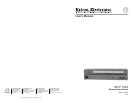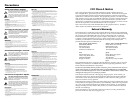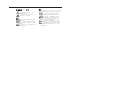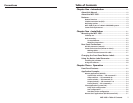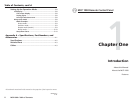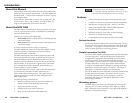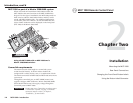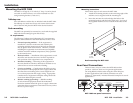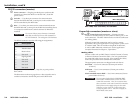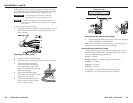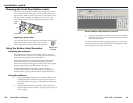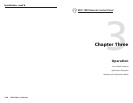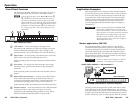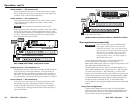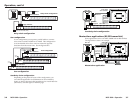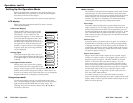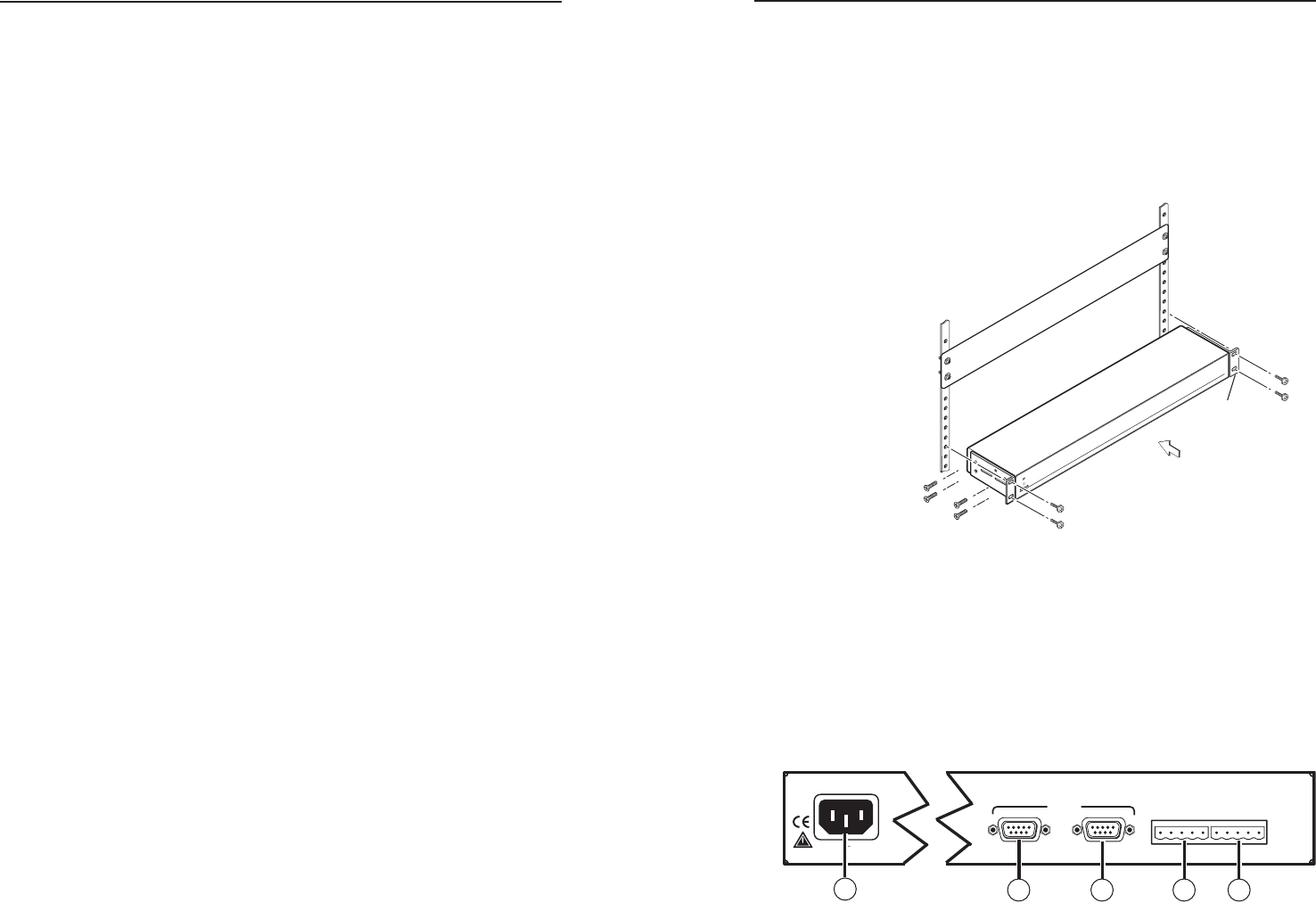
MCP 1000 • Installation
Installation
MCP 1000 • Installation
2-2 2-3
Mounting instructions
Follow these steps to rack mount the MCP 1000:
1. Attach the mounting brackets to the unit using eight of the
machine screws supplied with the mounting kit.
2. Insert the unit into the rack and align the holes in the
mounting brackets with the holes in the rack. Use four of
the supplied machine screws to attach the brackets to the
rack.
Rack Mounting
Bracket
#8 Screws
(4 Places
Each Side)
Rack mounting the MCP 1000
Rear Panel Connections
There are many ways to connect the MCP 1000 to other
products. However, there are two general applications:
one using RS-232, and the other using the comm-link port.
In some applications, both of these connectors are used.
Chapter 3, "Operations," includes illustrated examples of several
applications.
1
4
ED
COMM - LINK PORT
RS-232
1.5A MAX.
100-240V 50/60Hz
HOSTSWITCHER
CBA EDCBA
2 3 5
MCP 1000 rear panel connectors
Mounting the MCP 1000
The MCP is 1U high by 17.5" wide by 5" deep. It can be placed
on a table or other furniture, or it can be mounted in a rack
using mounting brackets (“rack ears”).
Tabletop use
Four self-adhesive rubber feet are included with the MCP 1000.
For tabletop use, attach one foot to each corner of the bottom
side of the unit and place the MCP in the desired location.
Rack mounting
The MCP can optionally be mounted in a rack with the supplied
MBD 149 rack mounting kit (part #70-077-03).
UL requirements
The following Underwriters Laboratories (UL) requirements
pertain to the installation of the MCP 1000 into or onto a rack.
1. Elevated operating ambient — If the equipment is
installed in a closed or multi-unit rack assembly, the
operating ambient temperature of the rack environment
may be greater than room ambient. Therefore, consider
installing the equipment in an environment compatible
with the maximum ambient temperature (Tma) specifi ed
by the manufacturer.
2. Reduced air fl ow — Installation of the equipment in a rack
should be such that the amount of air fl ow required for
safe operation of the equipment is not compromised.
3. Mechanical loading — Mounting of the equipment in
the rack should be such that a hazardous condition is not
achieved due to uneven mechanical loading.
4. Circuit overloading — Consideration should be given to
the connection of the equipment to the supply circuit and
the effect that overloading of the circuits might have on
over current protection and supply wiring. Appropriate
consideration of equipment nameplate ratings should be
used when addressing this concern.
5. Reliable earthing (grounding) — Reliable earthing
of rack-mounted equipment should be maintained.
Particular attention should be given to supply connections
other than direct connections to the branch circuit (such as
the use of power strips).



